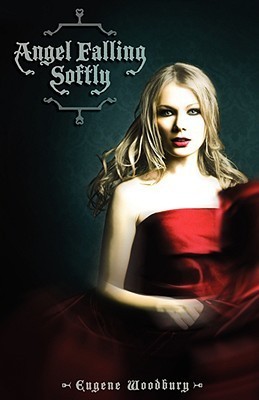If you remember, about 100 years ago in blog time, Eugene got lambasted all over the bloggernacle for his book, Angel Falling Softly, for various crimes from “not very spiritual” to “sacrilege” to calls for his excommunication or at the very least, pulling his temple recommend. Eugene’s tab did not fit into the proper slot.
A while back, I came across a blog I keep a little eye on and had commented just to clarify a point. Yesterday I noticed that “Anonymous” had chastised me for acknowledging that my book is filthy (it is) and for dropping the F-bomb in the first line of the story. The chastisement was something along the lines of, “You call that quality Mormon fiction?”
::gallic shrug::
Well, A) “quality” was used in terms of how well the book is designed by the publisher and how well it is constructed by Lightning Source and B) I don’t consider it Mormon fiction.
People have different tastes. Nice, sweet, nearly conflict-less LDS fiction wasn’t cutting the mustard for me with regard to sparkle and (dare I say it?) lust (which doesn’t have to be consummated, but could we acknowledge its existence?). Fiction by Mormon authors out in the wild might be my brand of wild but it’s short on philosophy and faith. Genre romance of any stripe, inspirational to erotica, suffers the same lack of one for the other, so it’s not us. It’s a general lack of crossover between faith and sex.
Slot B47c&&2kd existed, but there was no correlating Tab A47c&&2kd to put in it.
I, Random Reader, wanted my slot filled. I’ve been wanting it filled for a long time. And it remained empty, growing cobwebs. I wasn’t writing it, either, because I wanted to “get” published and you don’t “get” published with a mixture like that.
So I said, “Fuck it. I’ll write what I want.”
As far as I know, I only have 1 (count ’em, ONE) LDS reader who’s managed to get past the first page. That’s okay, too. I probably made a mistake in vaguely hoping I could find a small audience amongst my own who, like me, wanted something titillating and faith-affirming (er, maybe) at the same time. Or, at the very least, not anti.
What I didn’t expect was the positive reaction from non-members who found my portrayal of us as human and extremely fallible, struggling with matters of faith and sexuality, as sympathetic and relatable—and who found the addition of faith to these people’s lives just another layer of their personalities.
Eh, don’t get me wrong. Plenty of people haven’t liked it also, for various reasons including the politics and my prose style and the fact that my characters aren’t, well, very likable at times. But … I don’t like everybody else’s books, either, so no harm, no foul. Regardless of all that, though, who liked it, who didn’t, why or whatever, the fact of the matter was that for this consumer, the market had an empty slot. So I carved out my own tab. And lo and behold! I’m not the only one who liked the shape and size of that tab.
All the foregoing is to say that this past weekend, I was blessed to brainstorm projects with two religious types (one protestant, one Catholic and independent of each other) who also like the s(t)eamier side of genre romance. It doesn’t hurt that I love these two writers’ work already, but these two projects are so outside their creators’ norms AND they are outside of, well, everybody’s norms. And I love them for it. I would never have thought of these two ideas, but these ladies did and their tab fit my slot.
Now, ladies, hurry up and finish those things. I know this publisher, see …

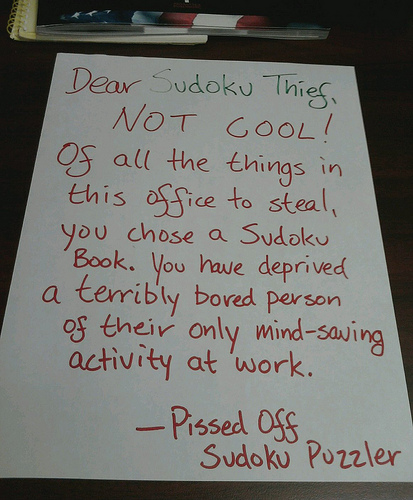
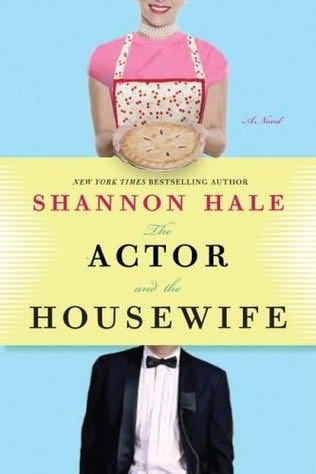 And I’m only 50 pages in.
And I’m only 50 pages in. I’ve had a lot on my mind lately that I haven’t been able to untangle, much less unpack on an issue-by-issue basis. What are they?
I’ve had a lot on my mind lately that I haven’t been able to untangle, much less unpack on an issue-by-issue basis. What are they?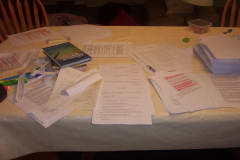
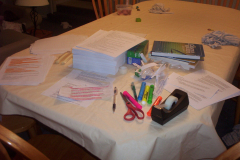
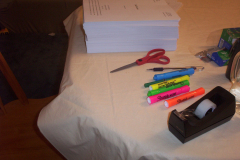
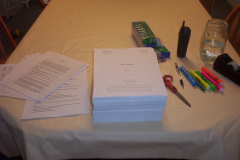
 Backstory: LDS fiction (aka Mormon fiction) is analogous to, say, what
Backstory: LDS fiction (aka Mormon fiction) is analogous to, say, what 